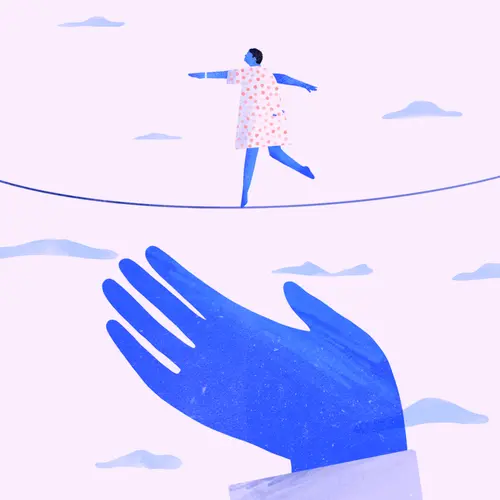The number of older people with HIV is growing. In part, that's because improved treatments are helping people with the disease live longer.
But thousands of older people are also newly diagnosed with HIV every year. And there could be even more seniors who are living with the disease without realizing it.
The idea that HIV has a bad reputation and feelings of shame or fear may keep older people from learning about the disease, getting tested, and seeking treatment.
Risks for Seniors
Older people face challenges that can add to the usual risks for infection.
They're often less aware of how HIV spreads, and they're less likely to have protected sex. It's not something divorced and widowed seniors are used to thinking about when they start dating again. And older women know they're not going to pregnant, so it may not seem important to use a condom. Changes to the vagina in older women also can increase their risk of getting HIV during sex.
Even though they visit their doctors more often, seniors are typically less likely than young patients to talk about their sexual habits or drug use. And doctors are less likely to ask about them.
Symptoms
HIV affects each person differently, so there's no single telltale sign. The symptoms of HIV can be mistaken for the regular process of aging.
Some people may not see any symptoms at first, while others may feel like they have the flu a few weeks after they're infected, with:
- Cough
- Diarrhea
- Fever
- Headache
- Sweats
It can take as long as 10 years for other symptoms to show up, such as:
- Weight loss
- Swollen glands
- Little energy
- Loss of appetite
- Skin rashes, sores in your mouth or genital area, or repeated yeast infections
- Gut cramps
- Short-term memory loss
Getting Tested
If you think you could have HIV, talk to your doctor. An early diagnosis means you can start treatment and prevent the disease from becoming AIDS.
You could get tested at your doctor's office or a clinic, hospital, or community health center, and it's often free.
Treatment
HIV is a manageable disease. But because older people are often diagnosed later, the disease may have had time to do more damage to the immune system.
After you've tested positive, even if you don't feel any different, it's important to find an HIV doctor right away. Because of your age, your treatment plan may involve several health care providers to treat a range of physical and mental needs.
HIV raises your odds of age-related health problems, including heart disease, thin bones, dementia and certain cancers.
To stay healthy, you'll need to take care of yourself. Exercise regularly, keep a healthy weight, eat well, and quit smoking.
Tell your doctor about new and changing symptoms. Also let all your doctors know about the drugs you're taking, because some medications can make your HIV drugs less effective.
Depression
It isn't a normal part of aging, but older people in general are at greater risk for depression. Seniors may have fewer friends and family members left in their lives, and it can be hard for them to talk about their feelings to anyone. So they feel more alone.
But it isn't just being lonely, sad, or hopeless. Depression in older people can also look like memory problems, general complaints about pain, and seeing or hearing things.
And people who have HIV are more likely to be depressed. A diagnosis of HIV could make it even harder to talk to people you care about, if you're worried about what they might think or say about you. You may be less likely to get medical care or ask for help, even when services are available.
Don't ignore depression. It's a real illness, and it can get in the way of you staying healthy. Depression may be linked to lower immune system response and higher levels of inflammation, which can make living with HIV harder. And when you're depressed, you may not care as much about sticking to your treatment.
Let your doctor know if you've been struggling for more than a couple of weeks. Treating depression can help you feel better mentally and physically.

